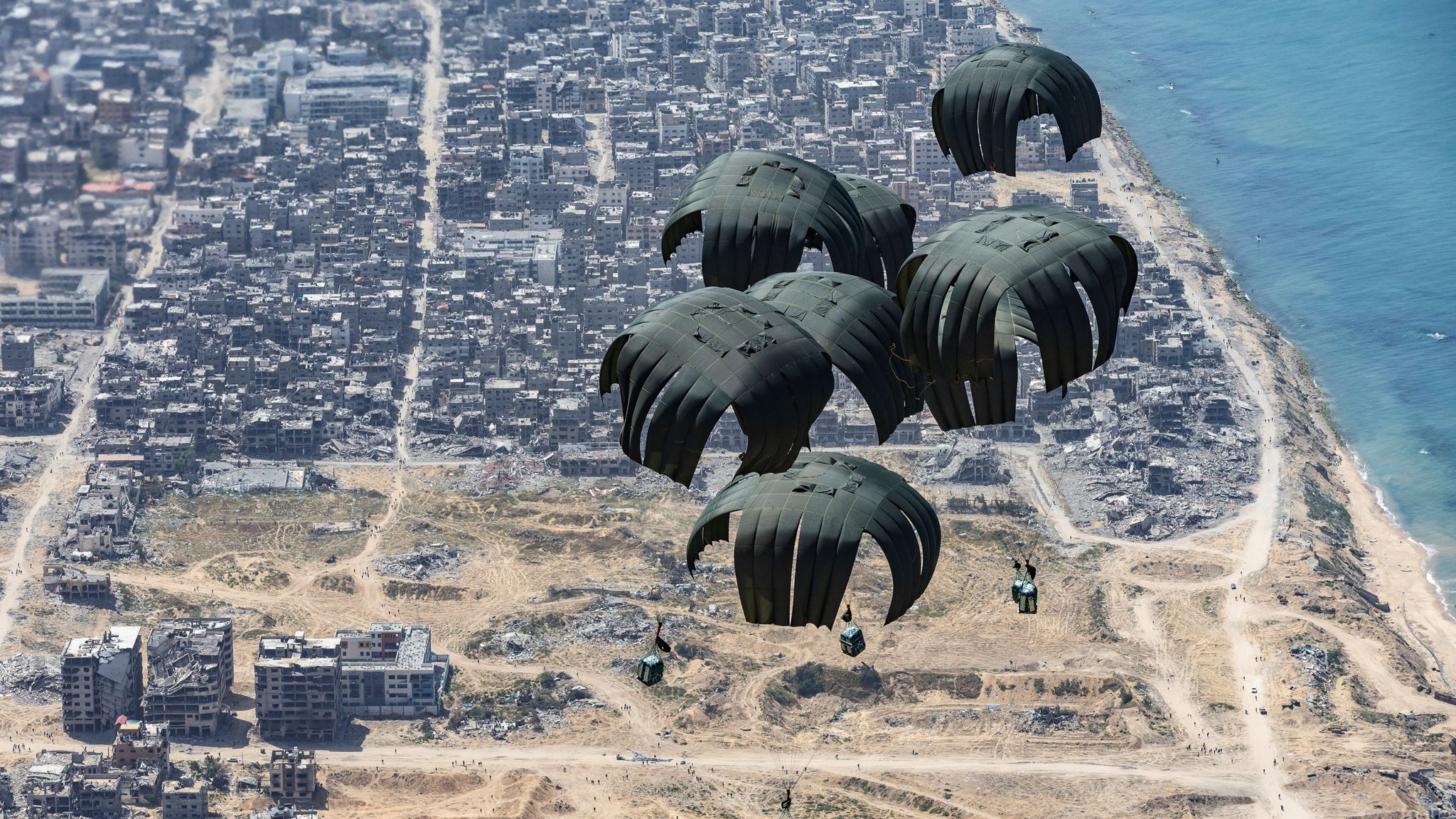The United Kingdom has confirmed its participation in airdropping humanitarian aid into the Gaza Strip amid escalating violence and a dire food crisis in the region.
British Prime Minister Keir Starmer announced that the UK would work with international partners.
These include Jordan, to deliver vital food supplies by air as part of efforts to alleviate the extreme starvation faced by Gazan civilians.
This move comes as Israel permitted such airdrops in response to increasing international pressure and mounting humanitarian concerns.
The humanitarian situation in Gaza is catastrophic, with widespread starvation and desperation gripping the population.
Starmer described the images coming from Gaza as “utterly horrifying” and emphasized that this airdrop initiative, though delayed, is a critical step to getting essential aid into the region.
The UK government has also pledged a new £60 million aid package to support health services, water, sanitation, and food assistance to over two million Palestinians in Gaza.
This package includes funding for UK-Med, a frontline medical organization operating two hospitals in Gaza.
This organization have reportedly treated hundreds of thousands of patients, including tens of thousands in recent weeks.
Additionally, the UK is contributing £20 million to the UN Relief and Works Agency (UNRWA).
This is reportedly to sustain essential services for Palestinian refugees, including emergency food and water distribution reaching hundreds of thousands monthly.
Despite these efforts, the environment for aid distribution has been fraught with deadly violence.
Over the past months, aid distribution sites, particularly those managed by the controversial Gaza Humanitarian Foundation (GHF).
The GHF is a U.S. and Israeli-backed organization—have been scenes of repeated lethal incidents.
Palestinian health officials and witnesses report that Israeli forces have fired upon crowds of Palestinians.
This was as they gathered near these newly established aid hubs, resulting in hundreds of deaths and injuries.
According to the UN’s human rights office, nearly 900 Gazans have been killed since late May.
This number were killed while trying to access food, most of these fatalities occurring near GHF-operated sites.
Eyewitness testimonies and investigations, including reports by CNN, underline that Israeli military forces have opened live fire on desperate civilians approaching these aid points.
Video and ballistic evidence indicate that the gunfire often comes from Israeli tanks and machine guns positioned close to the humanitarian sites.
The Israeli military claims it only fired warning shots or targeted individuals it deemed threats but denies deliberately shooting civilians.
Conversely, health workers, survivors, and international observers accuse the military of excessive and lethal force, characterizing the situation as a grave humanitarian violation.
The Gaza Humanitarian Foundation’s operations, pushed by Israel and the U.S., have replaced traditional U.N.-led aid mechanisms.
However, they have been heavily criticized by the international community for compromising the neutrality and impartiality essential to humanitarian work.
The U.N. and other aid organizations argue that the new system enables the politicization and weaponization of food aid, contributing to the violence and undermining the delivery of assistance.
Human rights advocates have condemned the aid sites as “human slaughterhouses,” given the deadly toll on civilians seeking food.
International responses have included calls by the UK, along with Germany and France, for an immediate ceasefire in Gaza.
They are urging the unconditional release of hostages and a halt to hostilities to allow safe aid delivery.
The UK’s approach combines emergency humanitarian support with diplomatic pressure aimed at securing safer conditions for aid workers and civilians.
The British government condemns forcible population displacements and continues to urge Israel to respect humanitarian principles while also addressing the root causes of the conflict.
In summary, the UK’s engagement in Gaza aid airdrops represents a significant attempt to respond to the severe humanitarian imperative amidst escalating violence near aid sites.
Though the initiative seeks to provide life-saving food and medical assistance, the operational context remains extremely dangerous.
Hundreds of Palestinians have been killed or injured near aid distribution points.
This is reportedly due largely to gunfire from Israeli forces, raising critical questions about the safety and impartiality of humanitarian operations in Gaza.
The UK’s £60 million aid package underscores a broader commitment to both immediate relief and longer-term healthcare and infrastructure support.
This is even as the conflict and associated violence continue to disrupt humanitarian efforts.







